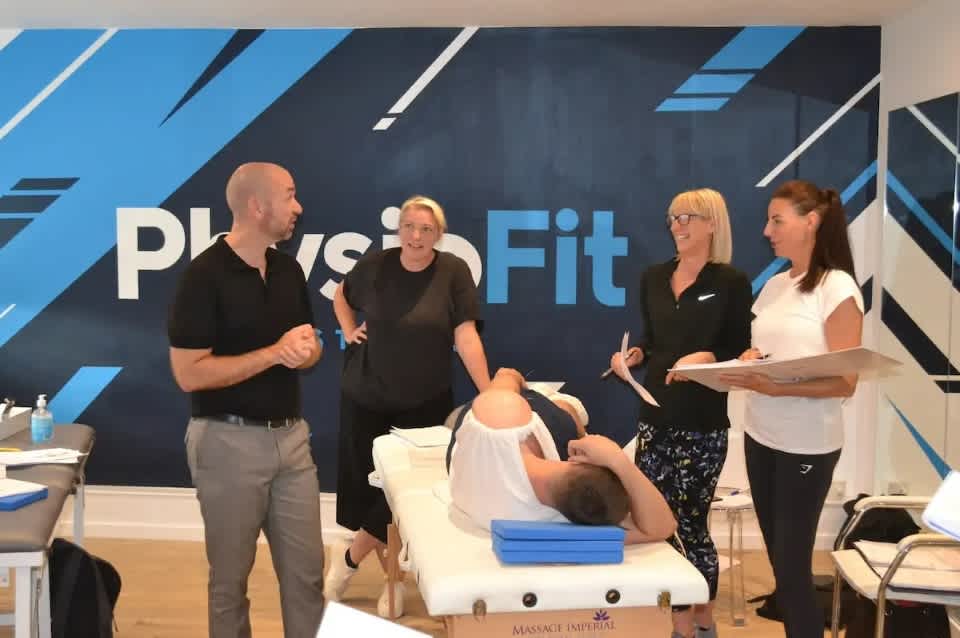Acupuncture is becoming more and more popular as an alternative, or complementary, treatment in the UK. As such, you might be wondering about Acupuncture as a career. In this article, we go over everything you need to know about training to be an Acupuncturist.
So, how do you train to be an Acupuncturist? To be an Acupuncturist, you must study a relevant 3-year degree-level course. However, healthcare professionals can study a relevant, accredited CPD course to become qualified to carry out Acupuncture.
Read on to learn more about how to train as an Acupuncturist.
How Do I Train to be an Acupuncturist?
In the UK, there are multiple routes to qualify as an Acupuncture professional, depending on your background when you begin training. Healthcare professionals can study accredited Acupuncture CPD courses to be able to competently incorporate acupuncture into their practice. However, the term Acupuncturist is a protected title for those that have completed a degree-level course.
Those from a non-medical background may benefit from a further education, or a degree that provides context in general human biology and anatomy, such as life/medical sciences or complementary therapies before studying Acupuncture.
Alternatively, to train to be an Acupuncturist, you could study a non-degree level course that is accredited by a professional organisation such as the British Acupuncture Council, the Acupuncture Society, or the Association of Traditional Chinese Medicine.
What Qualifications Do You Need to be an Acupuncturist?
The term Acupuncturist is a protected title, and to become an Acupuncturist you must complete a degree in Acupuncture or other relevant course. Healthcare professionals, such as Nurses Physiotherapists, and Osteopaths, are able to complete accredited CPD courses which will enable them to carry out Acupuncture, however, they cannot call themselves an Acupuncturist.
Each training provider will have different entry requirements; however, it is possible to begin training with no formal, relevant qualifications. We do recommend that you have relevant qualifications, however, as existing knowledge of human anatomy will be highly beneficial.
Entry to the British Acupuncture Accreditation Board (BAAB) usually requires study of Acupuncture at degree-level, or study of a course accredited by the body itself. Qualified medical or healthcare professionals can study an accredited Acupuncture CPD course to gain entry to the BAAB.
Similarly, if you meet professional standards, you may join the British Acupuncture Council (BAcC) register to begin completing a BAAB accredited course, usually a minimum of 3 years’ study at degree-level, before being accepted for professional membership at the BAcC.
Alternatively, non-healthcare professionals could study to carry out Acupuncture by completing a relevant CPD course such as our Level 4 Sports Massage Course, before undertaking our Foundation Acupuncture and Dry Needling Course. In most cases, you’ll also need to pass a background check.
How Long Does it Take to Become an Acupuncturist?
As Acupuncturist is a protected term, you must study a relevant degree-level course to become an Acupuncturist, which will usually take a minimum of 3 years’ study (or the equivalent part-time study).
If you are a healthcare professional, such as a Nurse, Physiotherapist, or Chiropractor, choosing to complete an acupuncture CPD course, the time it takes to become qualified to carry out Acupuncture will be considerably shorter, depending on how long your course lasts, usually for a few days.
What Skills Do You Need to be an Acupuncturist?
Various skills, beyond knowing how and where to insert needles, are needed to be a competent Acupuncturist, or to carry out Acupuncture. These include:
- Knowledge of medicine and human anatomy
- Knowledge of physiology
- Sensitivity, understanding, and being non-judgmental
- Customer service skills
- The ability to remain calm under pressure
- Attention to detail
- Good initiative
- Counselling skills
These skills ensure a good bedside manner and assure the client that you are more than just competent. It tells them that you are thoughtful, intentional, and trustworthy.
Can You Get an Acupuncture Degree Online?
It is highly unlikely that any accredited Acupuncture course, degree, CPD, or otherwise, will be completed entirely online, as workshops and hands-on experience is required to learn how to physically practice.
Many courses will have online modules that you can complete at home when it suits you. However, this is likely to be theory, standards, best practices, case studies, and assessments. In-person classroom, workshop, and clinic study will be required in order to learn how to apply Acupuncture safely, to build confidence in your abilities, and to prove competence.
How Much Does an Acupuncturist Make?
In the UK, a full-time, qualified person that carries out Acupuncture makes, on average, £22,360. In the early stages of your career, you can expect to treat 1-4 clients a day at a rate of around £40-£70, with an initial consultation fee of around £25-£60.
Once you are more established as an Acupuncture professional, you can expect to treat around 30-40 clients a week, with fees varying depending on the success of the practice. Medical professionals that choose to train in acupuncture as CPD can expect their salary to remain largely unchanged unless they choose to practice Acupuncture as part-time work outside of their usual role.
Acupuncture CPD Courses at Breeze Academy
Breeze Academy, one of the UK’s top CPD providers, offers a range of acupuncture and dry needling CPD courses for healthcare professionals. Check out our Foundation Acupuncture Courses for Nurses, Physiotherapists, Midwives, and more today to kickstart your new skill.
Those that are not currently healthcare professionals can also choose to first study our Level 4 Sports Massage Course to gain entry to our Foundation Acupuncture and Dry Needling Course.
